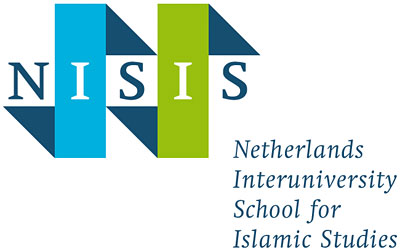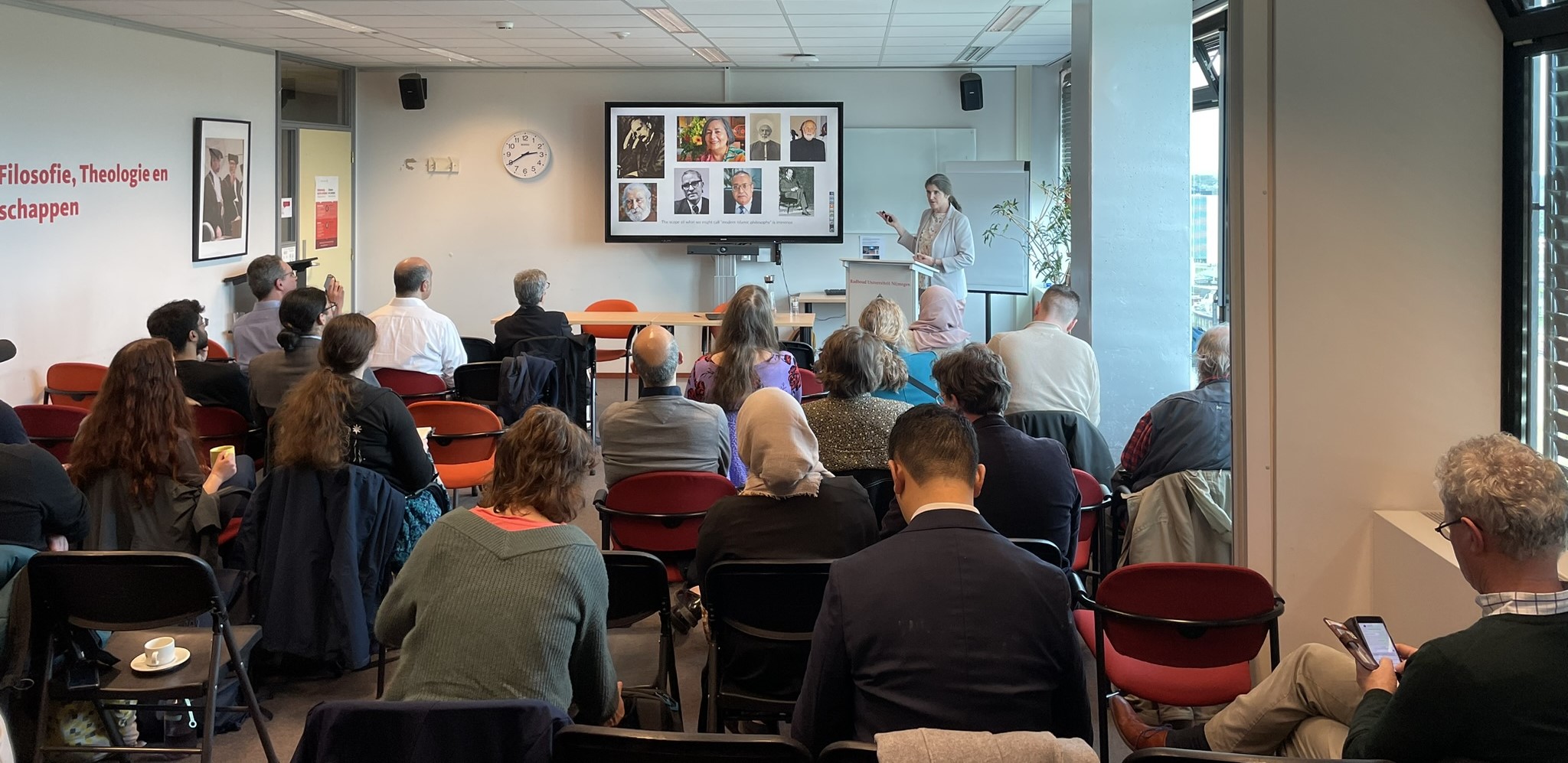News
Report seminar “Islamic Philosophy?”
On Friday 12 April, the Netherlands Interuniversity School of Islamic Studies (NISIS) organised a seminar on Islamic philosophy at and in collaboration with Radboud University, Nijmegen. It started with introductions by Professor Carla Rita Palmerino, the director of research and head of the department of the History of Philosophy (both at the Faculty of Philosophy, Theology and Religious Studies at Radboud University), and Dr Joas Wagemakers, director of NISIS.
The seminar continued with a session on classical Islamic philosophy. The first speaker, Professor Cornelia Schöck (Ruhr-Universität Bochum), presented her work on how Muslim theologians have adopted and transformed Aristotelian philosophy. Although this was a highly theoretical presentation, Professor Schöck was nevertheless able to make it intelligible to a broader audience. This was followed by Dr Andreas Lammer’s (Radboud University) presentation on Avicenna and al-Ghazali. By making use of the example of a Las Vegas magic trick, he showed that Avicenna and al-Ghazali are not as fixed in their stereotypical images as, respectively, the pure philosopher and the anti-rational Muslim scholar, but actually had more in common than is often believed.
After lunch, the second session dealt with pre-modern Islamic philosophy. It featured Professor Peter Adamson (Ludwig-Maximilians-Universität München), whose presentation focussed on the scholar al-Biruni (d. ca. 1048) and the way the latter has drawn on Greek and Indian philosophy and the distinction between “elite” and “common” beliefs. This was followed by Dr Ahab Bdaiwi’s (Leiden University) presentation on the role of philosophy among the first six Shiite Imams in their worldview. The latter was contextualised in a broader attempt to redirect the focus away from Sunnism and towards the relevance of philosophy in Shiism.
The third session of this seminar concentrated on modern Islamic philosophy. The two speakers of this session, Dr Harald Viersen (Radboud University) and Professor Kata Moser (Georg-August-Universität Göttingen) took turns presenting their work. Viersen spoke on Mustafa ‘Abd al-Raziq, ‘Ali Sami al-Nashshar and the post-Orientalist study of Islamic philosophy in twentieth-century Egypt. Contextualising these two thinkers by delving into factors such as colonialism and the Nahda (renaissance) of Arab literature, language and culture, he dealt with notions such as heritage, authenticity and modernity. Moser, for her part, concentrated on the Christian philosopher Nasif Nassar and the importance of secularism in his thought (and that of his predecessors) and what role it plays in his philosophical views on justice. By doing so, both speakers also touched upon the question – dealt with implicitly and explicitly by all speakers at this seminar – of what makes Islamic philosophy Islamic and philosophical.
The fourth and final session of this seminar was a public lecture, specifically taking a broader and less specific approach to the topic of Islamic philosophy. As such, Professor Carool Kersten (Catholic University Leuven) presented his work on philosophies of religion in the contemporary Muslim world. First concentrating on the right word to use to denote philosophy in Arabic (ultimately settling on fikr (thought)), he subsequently focussed on the work by the Indian philosopher Muhammad Iqbal and his influence on other contemporary thinkers, including the Egyptian Hasan Hanafi, the Moroccan Muhammad ‘Abid al-Jabiri and the Iranian Abdolkarim Soroush. Taking a global approach, Kersten brought the discussion full circle by returning to the use of terminology again.
NISIS would like to thank all speakers, who helped make this an interesting and fascinating seminar, as well as Radboud University in Nijmegen, which welcomed us and treated us to a very nice lunch. We would specifically like to thank Professor Karin van Nieuwkerk (Radboud University), Dr Andreas Lammer and Dr Harald Viersen for helping us to make this seminar a reality. Their input on the content of the seminar and their help in organising it were essential in ensuring its success. We look forward to working with them and perhaps seeing the readers of this report at a future NISIS event.


